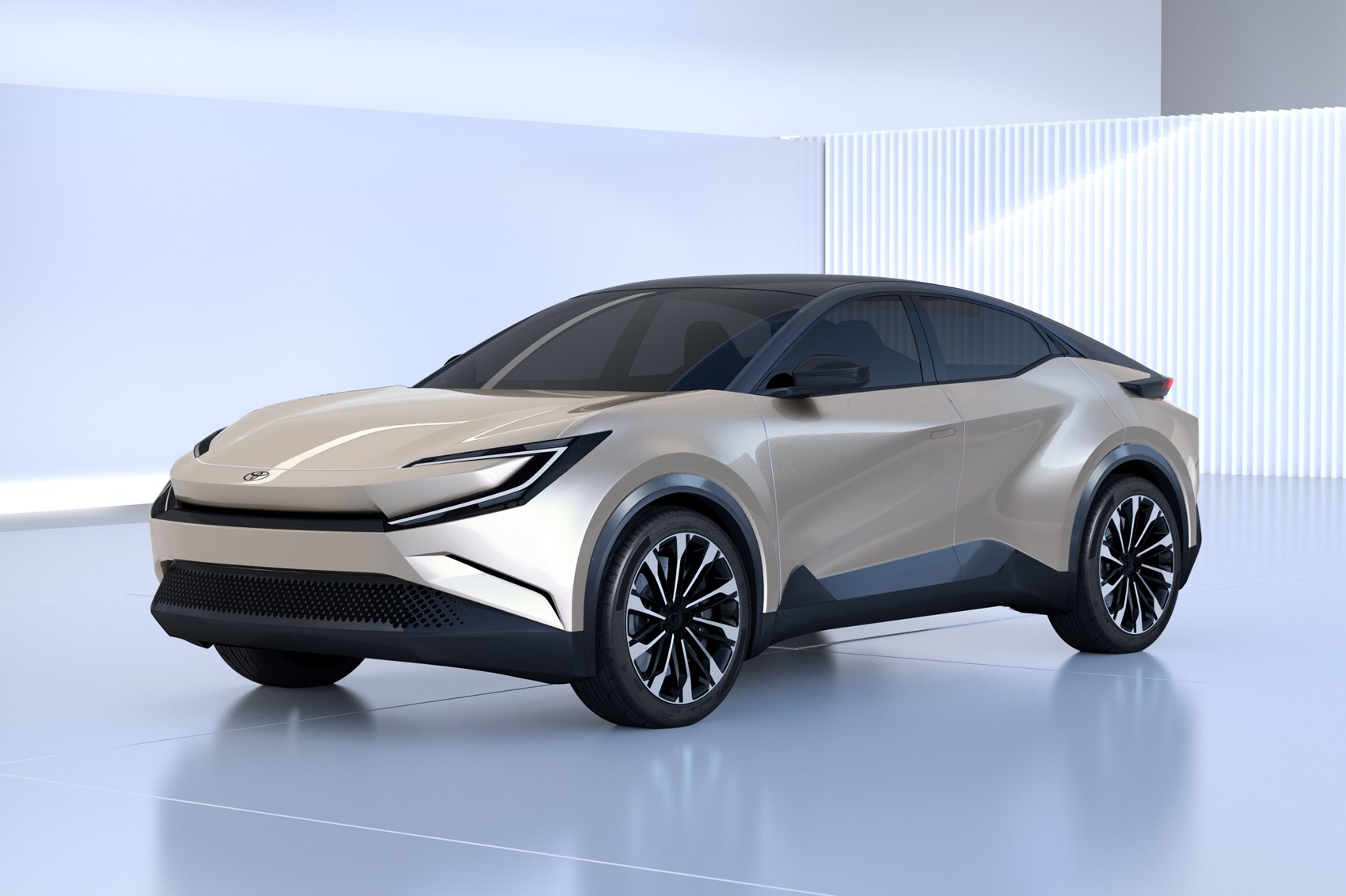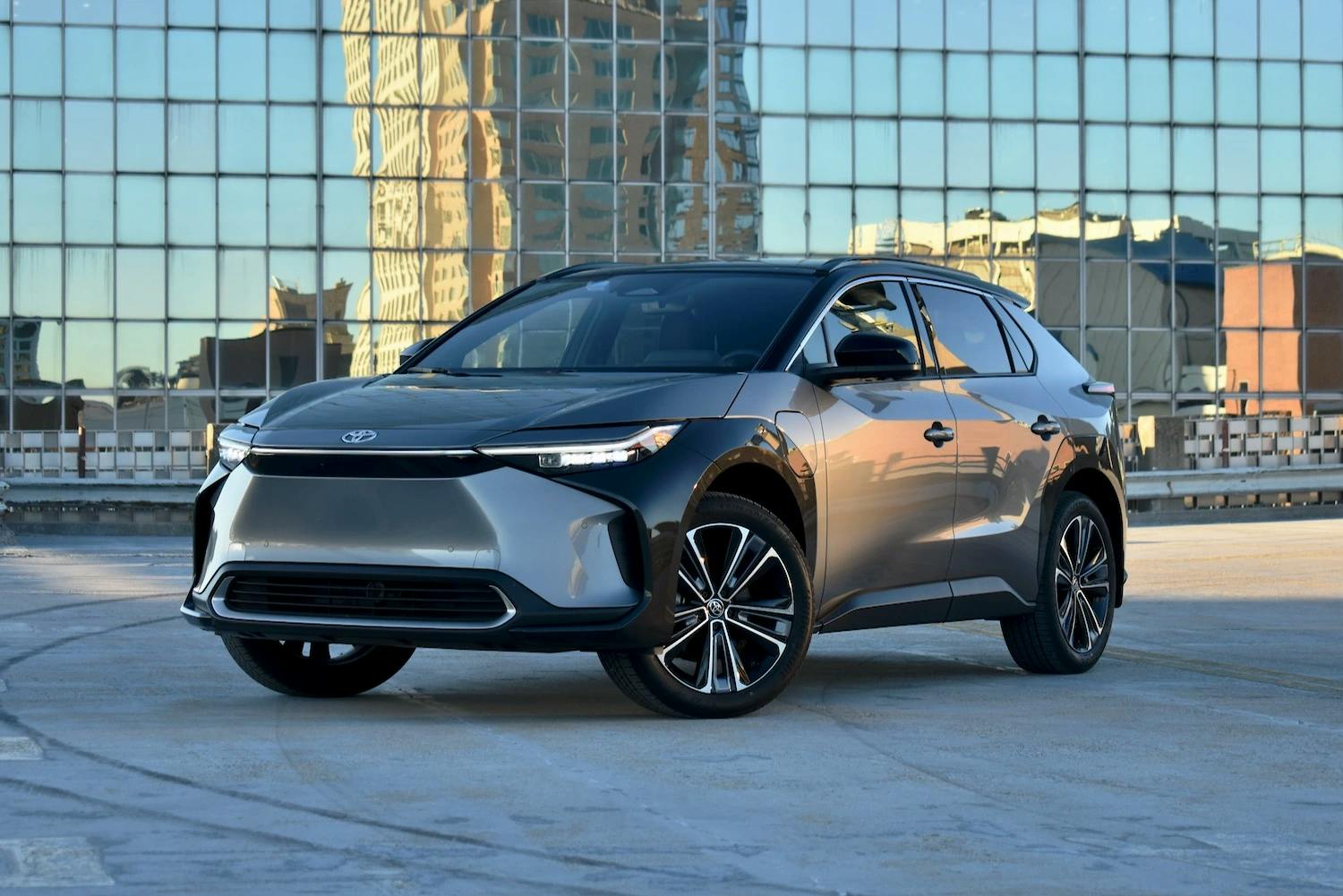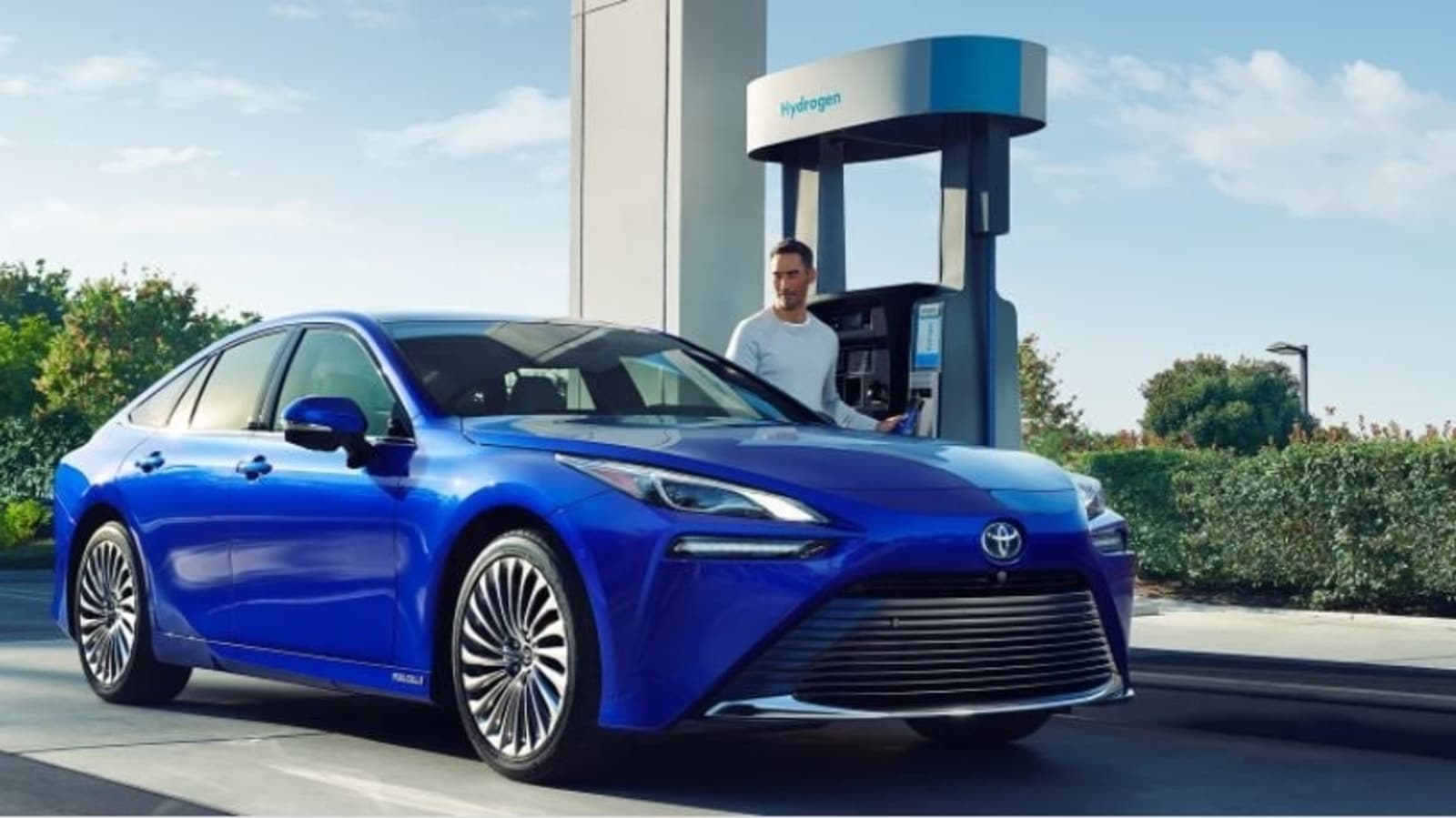Outstanding Info About Are Toyotas Stopping Electric Cars

New Toyota Electric Car 2024 Uk Toby Aeriell
Toyota and Electric Vehicles
1. Is Toyota really pumping the brakes on EVs?
So, you've heard whispers on the internet — rumors swirling like tumbleweeds — that Toyota is giving electric vehicles (EVs) the cold shoulder. Is it true? Are they trading in their electric dreams for a nostalgic return to gasoline glory? Well, the situation is a tad more nuanced than a simple yes or no. Think of it less as a full stop and more like a strategic pause, a carefully considered recalibration.
For a while there, it seemed like every car manufacturer was racing to plant their flag in the EV market. But Toyota, ever the pragmatic giant, has been taking a slightly different approach. They've been championing hybrids for years, and they see them as a crucial stepping stone, a bridge between the internal combustion engine and a fully electric future. They're not abandoning EVs altogether, but they're definitely playing the long game.
The key to understanding Toyota's strategy lies in their belief that the transition to EVs won't be a sudden switch flip. They envision a more gradual evolution, with different powertrains catering to diverse needs and infrastructure readiness across the globe. Some regions might be perfectly suited for EVs right now, while others are still playing catch-up in terms of charging infrastructure and electricity grid capacity. Toyota is betting that hybrids, plug-in hybrids, and even hydrogen fuel cell vehicles will play a significant role in reducing emissions in these areas.
Consider this: building a truly compelling EV requires a massive investment in battery technology, charging infrastructure, and raw materials. Toyota wants to make sure that when they fully commit to EVs, they're doing it right. They're focusing on developing solid-state batteries, which promise greater energy density, faster charging times, and improved safety. This research and development takes time, and Toyota is willing to be patient, even if it means appearing to lag behind some of its competitors in the short term. Think of it as the tortoise and the hare — slow and steady might just win the electric race.

The Hybrid Holdout
2. Why hybrids are Toyota's darling.
Alright, let's be honest. Toyota has a serious thing for hybrids. Theyve been perfecting the hybrid dance for over two decades with the Prius, and they've got it down to a science. But why are they so keen on sticking with this technology when everyone else seems to be going all-in on EVs?
Firstly, hybrids offer a practical solution for drivers who aren't quite ready to make the leap to full electric. They provide improved fuel efficiency and reduced emissions compared to traditional gasoline cars, without the range anxiety associated with EVs. You can still fill up at any gas station, and you don't have to worry about finding a charging station on a road trip. This makes hybrids a more accessible and convenient option for many people, especially those who live in areas with limited charging infrastructure.
Secondly, Toyota sees hybrids as a way to democratize electrification. EVs are still relatively expensive, and the higher price tag can be a barrier to entry for many consumers. Hybrids, on the other hand, are more affordable, making them a more realistic option for a wider range of buyers. By offering a more accessible and practical electric solution, Toyota believes they can have a greater impact on reducing emissions overall.
And finally, Toyota is leveraging its hybrid expertise to inform its EV development. The knowledge and experience they've gained from building millions of hybrid vehicles is invaluable when it comes to designing and manufacturing EVs. They're learning about battery management, electric motor efficiency, and regenerative braking, all of which are essential for creating compelling and reliable EVs. So, while they may not be leading the EV charge right now, they're quietly building a foundation for future success.

Toyotas ALL NEW Cheapest Electric Car SHOCKS The Entire Industry
Hydrogen Hopes
3. Are hydrogen cars the future for Toyota?
Beyond hybrids and electrics, Toyota also has a keen interest in hydrogen fuel cell technology. This isnt just a fleeting crush, its a full-blown, lets-see-where-this-goes relationship. Why hydrogen, you ask? Well, the advantages are pretty compelling.
Hydrogen fuel cell vehicles (FCVs) are powered by hydrogen gas, which reacts with oxygen in a fuel cell to produce electricity, water, and a bit of heat. The electricity then powers the car's electric motor, just like in an EV. But here's the kicker: FCVs can be refueled in a matter of minutes, similar to a gasoline car, and they offer a driving range comparable to traditional vehicles. The only emission is water vapor, making them a zero-emission solution.
Toyota believes that hydrogen has the potential to be a key part of a sustainable energy future. They see hydrogen as a versatile energy carrier that can be produced from a variety of sources, including renewable energy like solar and wind. This could help reduce our reliance on fossil fuels and create a more secure and sustainable energy supply.
However, hydrogen technology isn't without its challenges. The biggest hurdle is the lack of hydrogen refueling infrastructure. Building a network of hydrogen stations is expensive and requires significant investment. There are also challenges related to the production and storage of hydrogen. But Toyota is committed to overcoming these challenges and believes that hydrogen will eventually play a significant role in the transportation sector. They're already selling the Mirai, a hydrogen fuel cell sedan, and they're continuing to invest in research and development to improve fuel cell technology and reduce costs.

Introducing The Toyota BZ4X A Futuristic AllElectric Crossover SUV
The Solid-State Secret
4. The quest for the perfect battery.
Now, let's delve into something really fascinating: Toyota's obsession with solid-state batteries. These aren't your run-of-the-mill lithium-ion batteries. They're like the superhero version, promising to revolutionize the EV landscape. But what makes them so special?
Solid-state batteries replace the liquid electrolyte found in conventional lithium-ion batteries with a solid electrolyte. This seemingly simple change has some pretty profound consequences. For starters, solid-state batteries are significantly safer than lithium-ion batteries. The solid electrolyte is less flammable, reducing the risk of fires and explosions. This is a major concern for EVs, and solid-state batteries could offer a much-needed peace of mind.
But safety isn't the only advantage. Solid-state batteries also offer higher energy density, meaning they can store more energy in the same amount of space. This translates to longer driving ranges for EVs. They also charge faster, potentially allowing drivers to add hundreds of miles of range in just a few minutes. This would address one of the biggest pain points for EV owners: long charging times.
Toyota is heavily invested in solid-state battery technology and is aiming to be one of the first automakers to bring them to market. They're working on developing a mass-production process for solid-state batteries, which is no easy feat. The technology is still relatively new, and there are challenges related to manufacturing and durability. But Toyota is confident that they can overcome these challenges and unlock the full potential of solid-state batteries. They see them as the key to creating truly compelling and competitive EVs.

Toyota Exhibits Hydrogen Fuel Cell Car, Offers Up To 640km Range
So, What's the Verdict? Are Toyotas Stopping Electric Cars?
5. A nuanced approach to electrification.
Okay, so let's circle back to the original question: Is Toyota throwing in the towel on electric vehicles? The answer, as you probably guessed, is a resounding "not quite." They're not abandoning EVs, but they're definitely taking a more cautious and measured approach compared to some of their competitors. They're not simply chasing the EV hype train; they're charting their own course, one that's informed by their expertise in hybrids, their ambitions in hydrogen, and their relentless pursuit of better battery technology.
Think of it like this: Toyota is building a diversified portfolio of electrified vehicles, with hybrids, plug-in hybrids, hydrogen fuel cell vehicles, and battery electric vehicles all playing a role. They believe that this multi-pronged approach is the most effective way to reduce emissions and address the diverse needs of drivers around the world. They're not putting all their eggs in one basket; they're spreading their bets across multiple technologies, ensuring they're well-positioned for whatever the future holds.
Ultimately, Toyota's goal is to create sustainable and enjoyable transportation solutions for everyone. They're not just focused on building EVs; they're focused on building a better future for the planet. And that requires a holistic approach, one that takes into account the complexities of the automotive industry and the diverse needs of consumers. So, no, Toyota isn't stopping electric cars. They're just taking a different route to get there.
In short, while other automakers are sprinting towards an all-electric future, Toyota is running a marathon, carefully pacing itself and strategically choosing its terrain. Whether that strategy will pay off in the long run remains to be seen, but one thing's for sure: Toyota's approach to electrification is anything but boring.

Toyotas New Electric Car Price Will Shock You 17,500 OFF Or 159 A Month
Frequently Asked Questions (FAQs)
6. Your burning questions, answered!
Q: Is Toyota giving up on electric cars completely?
A: Absolutely not! Toyota is still developing and planning to release electric vehicles, but they're taking a more measured approach than some other automakers. They see hybrids, plug-in hybrids, and hydrogen fuel cell vehicles as important parts of the transition to a fully electric future.
Q: Why is Toyota so focused on hybrids?
A: Toyota believes hybrids offer a practical and affordable way to reduce emissions right now. They provide better fuel efficiency than traditional gasoline cars without the range anxiety of EVs. Plus, Toyota has decades of experience building reliable and efficient hybrids.
Q: What's the deal with Toyota and hydrogen fuel cell cars?
A: Toyota sees hydrogen as a potentially clean and sustainable fuel source. Hydrogen fuel cell vehicles have zero emissions (only water vapor!) and can be refueled quickly. However, the lack of hydrogen refueling infrastructure is a major challenge.
Q: When will Toyota release a solid-state battery EV?
A: Toyota is aiming to be one of the first automakers to bring solid-state battery EVs to market, but the exact timeline is still uncertain. They're working on developing a mass-production process for these batteries, which is a complex and challenging undertaking. Keep an eye out for announcements in the coming years!